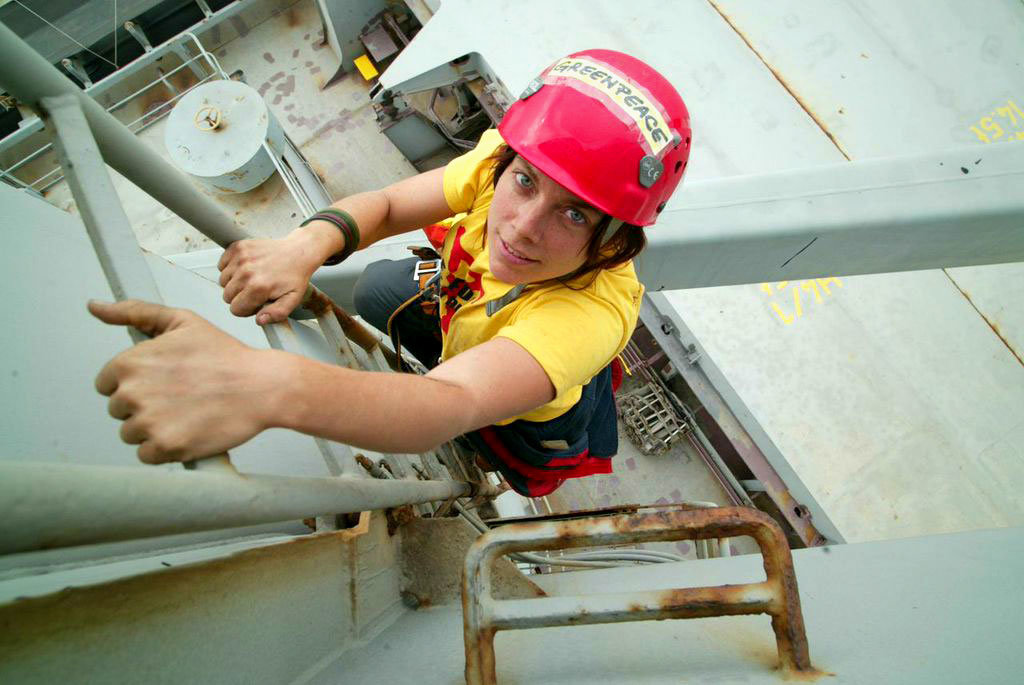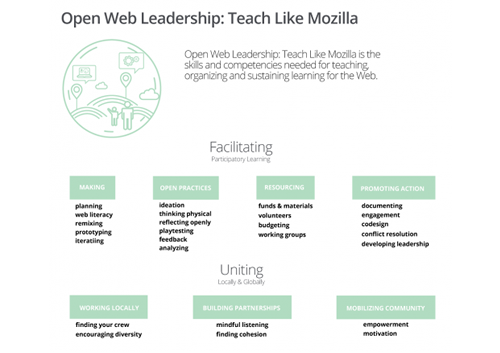My colleague Amrekha has been developing some materials around the concept of courage. It has me thinking. A lot. I’ve mentioned courage in other posts:
But I’ve learned much in the last couple of months about how expansive the idea of “courage” is. I wanted to take a look at connecting “courage” and “open” because I tend to have my head wrapped up in nascent traits of human personalities. I think that certain traits, aided by open practices, creates a record of learning that can be viewed as “leadership development”.
First, let’s break down courage.
Amrekha and the Greenpeace Story Team have determined six distinct types of courage. She’s writing about them more extensively, and once we post this work as a complement to Workshop in a Box, I’ll update this post. For now, here are some brief definitions, pulled straight from Amrekha’s documents:
Physical Courage is the courage that probably comes first to mind. It’s the kind that involves physical pain or endurance, where we might risk bodily harm or death to achieve a goal.
Moral Courage is […] acting from our values, what we know to be right, even at the risk of our social status or tarnishing our “rep”. Even when it might be inconvenient, expose us to ridicule, punishment, and the wrath of others.
Social Courage is the courage to be our authentic, real, imperfect, and powerful selves. It’s daring to be seen, heard and accepted as we are, not perform, perfect and please.
Emotional Courage is about telling the truth to ourselves first about our feelings and not denying our emotions that give us more insight into who we are and what we really need to flourish in a given situation.
Intellectual courage is what drives unrelenting curiosity about the world, the willingness to learn, attempt, experiment, even at the risk of failure.
Spiritual courage looks like leaning into tough questions even though we realise we may never really have The Answer. It means leaning into our own mortality and embracing Life in all its puzzling complexity and paradox.

Ok, let’s talk about “Open Practices”.
In several iterations dating back to 2012, Mozilla contributors have defined “Open Practices” as part of Web Literacy:
“Using and contributing web resources to keep the web transparent and universally accessible to all.” Mozilla contributors
The specific skills listed are:
- Distinguishing between open and closed licensing.
- Contributing web resources using the appropriate licensing to give others credit.
- Making web resources available under an open license.
- Advocating for the web as an open and public resource.
However, this definition and skill set is somewhat basic web literacy. “Open Practices” includes thinking abilities as well. Things like giving constructive feedback, playtesting or communicative ideation were pieces and parts to the map I started to develop for open leadership:

I include emotional intelligence and empathy-related behaviors and skills when thinking about leadership development. For me, a “leader” is not someone who has been given the position of leader (or manager or director or whatever), but someone who has earned it.
How does this relate to the courage work?
In her work looking at “courage”, Amrekha has determined some ingredients (authenticity, imagination, curiosity, resilience, connection and empathy). In brief, here’s how I think these ingredients relate to open practices, and by extension to being an open leader:
- Authenticity: Everyone is their authentic self in some situation. When they’re spending time with their best friends or family. Or when they are in a state of “flow”. There’s something about authenticity inside of the relationships where we are loved unconditionally and the situations where we are using open practices.
- Imagination: When we work openly, we have to think inside, outside and around the box. This means that we have to be imaginative in our solutions. We get ideas from the things our peers say about the work we share. As leaders, we create a communication loop where these ideas can be poked at, expanded upon and improved.
- Curiosity: The communication loop only works if we are intentional about making it work. We have to be curious about other people’s perspectives and motivations. Curiosity is a central component to learning, and I would argue that being playful in your work is a result of curiosity, which in turn creates more opportunity for open, constructive conversation.
- Resilience: Of course, when you invite open conversation you invite criticism as well. The ability to take the feedback that helps you push your work further and leave the feedback that doesn’t is important to maintaining your openness. If you can’t bounce back from critical commentary, it’s impossible to continue practicing openness. As a leader, it takes courage to make your own decisions around the greater good. You have to be resilient because sometimes people don’t see the bigger picture and this could cause them to strike out at you or your ideas.
- Connection: Using open practices is in itself an effort to connect. We publish early and often to invite people to connect with our work. We ask for help to invite diverse perspectives. When connection happens, we use open practices to maintain relationships and make sure contributors are attributed for the work they inspire. We strengthen these connections each time we iterate.
- Empathy: If we are inviting connection, then we need to have empathy and understanding for the people we are connecting with, especially in a mostly text-based environment (e.g. Asynchronous & Online). Often our generous and thoughtful responses are viewed as ironic or sarcastic. Sometimes our anger is mistaken for humor. We have to be much more clear about what we need and want in an online space because we are lacking the physical cues that help us understand each other. Giving someone the benefit of the doubt, assuming best intentions and having empathy and understanding in any situation is as important to open practices as it is in your everyday life.
Open practices are not just about using open licenses or open technologies. Openness is about showing up, being who you are, and contributing the best you have to offer to your communities. It takes courage to work openly.